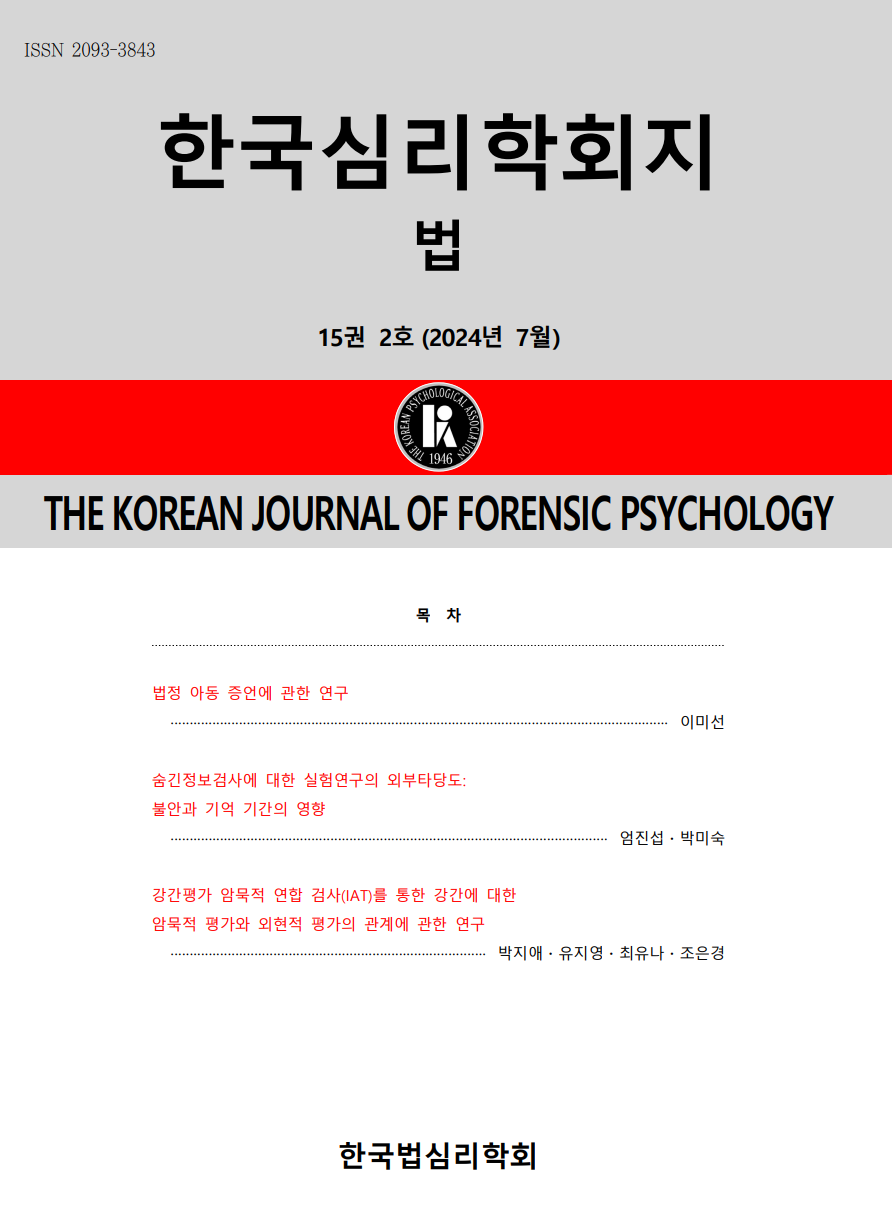 ISSN : 2093-3843
ISSN : 2093-3843
This study aimed to verify the utility of polygraph testing using an information-gain analysis, the Bayesian approach by Wells and Olson (2002). Polygraph test results and prosecution disposition results in Korea for the period 2018-2020 were analyzed. Thereafter, we applied Vrij’s (2008) data to examine the relative usefulness of polygraph testing as compared to unassisted lay- and professional persons. After analyzing a total of 574 cases, it was confirmed that deceptive outcome of polygraph testing increases the posterior probability of being guilty. Moreover, polygraph testing provides significantly more information gain than lay- and professional persons’ decisions over the entire range of prior probability. Especially, the deceptive outcome of a polygraph(0.27) is approximately 3 times more informative than a layperson’s(0.08) decision decision that a person is a liar at the prior probability of 0.32. These research results confirm that polygraph testing is relatively more useful than the judgment of laypersons and experts in the investigative domains. The study findings may help increase the reliability of the investigation using polygraph testing.